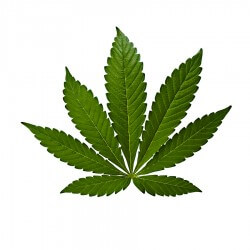
In the last decade, marijuana has experienced many political and social changes. Today, there are at least three legal classifications of marijuana consumption, depending on an individual state’s law. In a couple of states, marijuana is approved for recreational use; in some states, it may be consumed with a lawful prescription to help treat certain specified health conditions; and in other states, it is entirely illegal.
According to the 2013 National Survey on Drug Use and Health, which included research on the unlawful use of marijuana, for the 2013 survey year:
- Marijuana was the most commonly used unlawful drug.
- In the month prior to the survey, there were 19.8 million users (7.5 percent of total Americans aged 12 or older).
- The rate of marijuana abuse in 2013 was similar to 2012.
- The 2013 usage rate was higher than the rates for 2002 to 2011.
- In the year prior to the survey, 2.4 million Americans used marijuana for the first time.
Consumption
The active drug in marijuana is known as THC. When people question how long marijuana stays in the body, they would be more accurate to ask how long it takes for THC to be eliminated. In urine, it’s not THC that is tested but rather the compound THC-COOH. The length of time THC remains in the body depends on several factors, including the volume of use, frequency of use, rate of metabolism, and method of consumption. Also, different tests, such as urine versus blood, may yield different results.
Ways to ingest marijuana include:
- Smoking. The drug can be rolled with tobacco paper into a “joint” or with cigar paper into a “blunt,” smoked in paraphernalia such as bong, or vaporized in a machine designed for this purpose.
- Eating. There are edibles such as “pot brownies,” and it can be found in a variety of other recipes.
- Tinctures. A medical form of cannabis, this concentrated form comes in a highly concentrated alcohol solution that can be taken sublingually or added to beverages.
- Wax. This highly concentrated formula can be smoked in a bong or a pen-like vaporizer tool.
Smoking is the most common form of marijuana consumption. A 2007 study conducted by the National Institute on Drug Abuse provides some illuminating insights into how long THC can stay in a person’s system. For study participants who smoked marijuana, there was a low-dose and a high-dose group. In the low-dose group, it took 3 to 12 hours for TCH to drop to a level low enough not to be detected. In the high-dose group, it took from 6 to 27 hours. However, it is important to note that the study participants were not regular marijuana smokers; it could be that regular users would not eliminate THC as quickly from their system as the study users.
In a separate study of users who orally ingested 20 mg of THC in a cookie, their blood reached peak levels of THC in one to five hours. While there was no further information provided by this source about how long it took for the THC to be undetectable, the peak window establishes that THC would likely take more than one to five hours to be eliminated.
Research has found that THC remains in the organs of the body longer than in the blood. The reason is that THC is a fat-soluble molecule which, when consumed, gets absorbed by organs including the lungs, heart, liver, and brain. Studies have found that, among regular marijuana users, THC can remain in fat tissues for up to four weeks. However, one study of regular users discovered that THC could be detected in the blood of some of these users for up to a month after last use.
In view of the many factors at play in the metabolizing of THC, it is difficult to estimate exactly how long it will remain in the system of any given user. However the studies referenced above can provide some guidance on the minimum and maximum length of the window of detection.
At Axis, we’re happy to provide you with information that can help you say goodbye to marijuana and get on track to a healthier life. If you, or someone you know, need help addressing a marijuana abuse or addiction issue, we can help. Call now.


